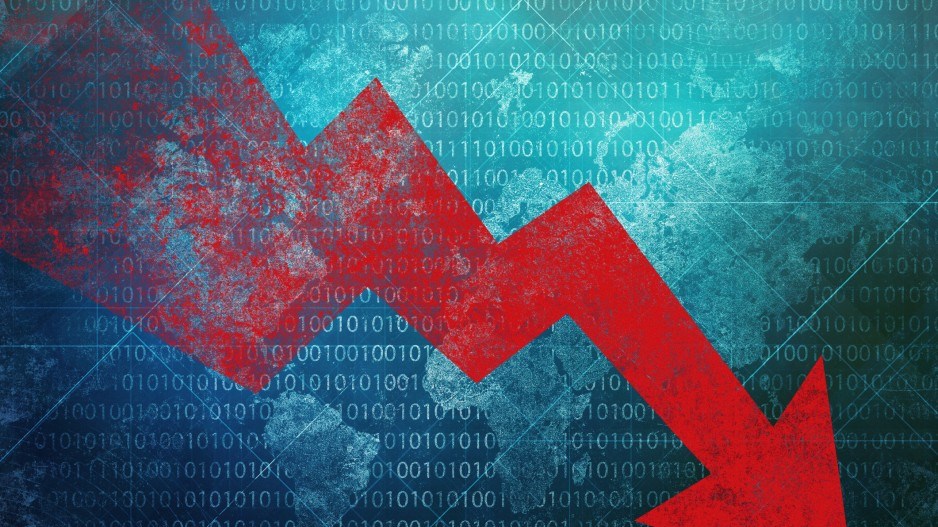The start of a new year usually places Canadians in a good frame of mind when it comes to financial matters.
When Research Co. and Glacier Media asked the country’s residents about the current state of affairs this past weekend, there was plenty of negativity in the air.
Just over a third of Canadians (35 per cent) rate the economic conditions in Canada today as “very good” or “good,” down six points since our previous tracking survey conducted in late June 2023. More than three in five (61 per cent, up five points) consider them “bad” or “very bad.”
This month, we find no region of Canada where at least two in five residents hold positive views on the nation’s financial standing. Quebec is first (38 per cent), followed by Ontario (36 per cent), Atlantic Canada (35 per cent), British Columbia (34 per cent), Saskatchewan and Manitoba (31 per cent) and Alberta (23 per cent).
We also see dejection on a question related to the future. Only 14 per cent of Canadians (down two points) think the national economy will improve in the next six months, while 41 per cent (down four points) foresee no change and 37 per cent (up five points) expect a decline.
In stark contrast to the gloomy national forecast, and at a time when many Canadians are looking at their post-holiday credit card bills, there is a slight increase in our own level of confidence to make ends meet. More than half of Canadians (55 per cent, up three points) rate their own personal finances today as “very good” or “good,” while 42 per cent (down four points) consider them “bad” or “very bad.”
We see little movement on the economic concerns that may keep Canadians up at night. Fewer than half have worried occasionally or frequently about the safety of their savings (47 per cent, unchanged) or the value of their investments (46 per cent, down two points). The proportions are lower for three other items we track every six months: Being able to pay their mortgage or rent (34 per cent, unchanged), themselves or someone in their household becoming unemployed (34 per cent, unchanged) and their employer running into serious financial trouble (28 per cent, up one point).
There is a drop when it comes to perceptions on inflation. Almost half of Canadians (47 per cent, down four points) expect to pay more in the next six months for a new television set. The results are higher – but in each case, lower than what we were told in June – for real estate (51 per cent, down four points), a new car (63 per cent, down three points), gasoline (65 per cent, down eight points) and a week’s worth of groceries (74 per cent, down five points).
The one question where we do perceive momentum is political. Just over two in five Canadians (42 per cent, up six points) trust Pierre Poilievre to do the right thing to help the economy. The rating on this question is four points higher for the leader of the opposition when compared to Prime Minister Justin Trudeau (38 per cent, down five points). Governor of the Bank of Canada Tiff Macklem checks in at 34 per cent (up one point).
The age brackets tell the story of how Poilievre’s message is resonating a year and a half before the next expected federal campaign. Just over a third of Canadians aged 18 to 34 and aged 35 to 54 have faith in Trudeau as an economic manager (36 per cent and 35 per cent respectively). Poilievre does significantly better on this question with each group (44 per cent among those aged 18 to 34 and 46 per cent among those aged 35 to 54).
Canadians aged 55 and over – who are more likely to be concerned about health care than housing – hold different views. While 37 per cent trust Poilievre to manage the country’s finances, the rating is higher for Trudeau (43 per cent).
The federal government continues to point at the unemployment rate as the one category it should be judged by. In 2009 and 2020, joblessness was the main driver of negative views on the national economy, with the unemployment rate reaching 8.3 per cent and 9.5 per cent respectively. The current unemployment rate of 5.8 per cent is not doing enough to make Canadians more confident about the country’s finances.
At the start of 2024, there’s “good news” and “bad news” for the party in power. Canadians are not as concerned about losing their jobs, more confident about their own financial standing and hold better views on the effect of inflation than they did at the midway point of 2023.
Still, more than three in five Canadians rate the economic conditions in the country as “bad” or “very bad” and the leader of the opposition is gaining ground on the current head of government as the most capable economic manager. The next six months will be crucial to the federal government’s re-election chances in 2025. If young and middle-aged Canadians continue to look at Poilievre as a welcome alternative, Trudeau will need to point to much more than a seemingly stellar unemployment rate to connect with voters.
Mario Canseco is president of Research Co.
Results are based on an online survey conducted from Jan. 6-8, 2024, among 1,000 adults in Canada. The data has been statistically weighted according to Canadian census figures for age, gender and region. The margin of error – which measures sample variability – is plus or minus 3.1 percentage points, 19 times out of 20.




